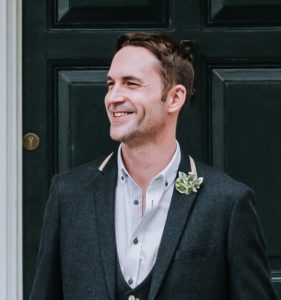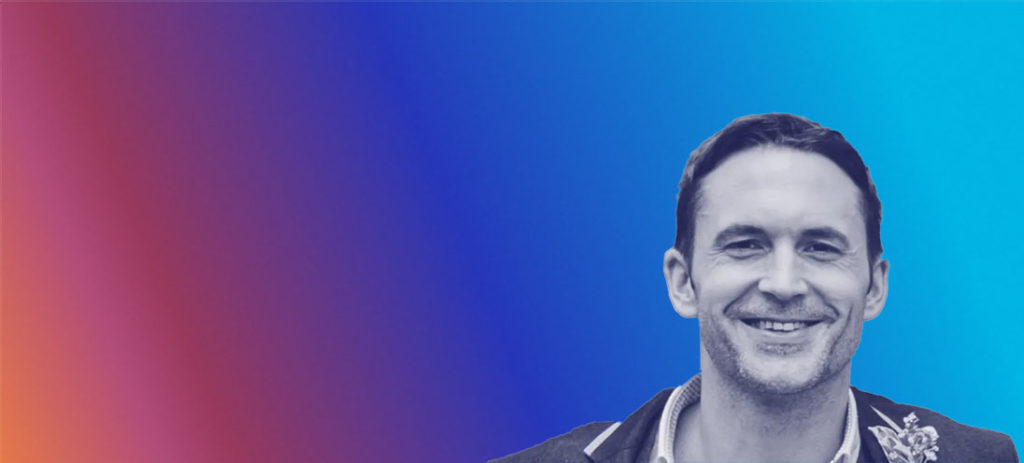
Fuelled by powerful global movements, the concept of white privilege has exploded into the mainstream over the past few years. I want to share my journey towards understanding the meaning of privilege, and how I am trying to turn this understanding into positive action.
First, a little about me. I am a white, middle-aged, heterosexual man living in Cheltenham, UK. I was born into a financially stable middle-class family and I have two loving parents who are still happily married. I grew up in an idyllic English countryside village, and at the local primary school I attended every child and every family was white and British. I went to a good grammar school before attending university, and I have spent the last 20 years working in the tech industry, typically doing well and gaining various promotions along the way.
In short, I am the epitome of white privilege.
At the beginning of my career, the tech industry was dominated by white men like me, and it was rare to find much in the way of diversity, especially in leadership positions. Happily, the tech industry began to recognise that a lack of diversity at all levels is a problem, not just from an ethical standpoint but also commercially, with myriad studies highlighting the business benefits of having a diverse workforce. This has encouraged more and more companies to talk about and invest in Diversity & Inclusion (D&I).
When this shift started to gain momentum, I admit that I was not fully aware of how my circumstances had afforded me certain privileges in life. I then discovered a new term: white privilege. And at first, I’m sorry to say, my reaction was a defensive one:

“But I’ve worked hard to get where I am”
“But I deserved every job offer and promotion”
“But I’m not going to apologise for being born”
“But I’m not part of the problem”
I am almost certain my initial reaction is not uncommon among white privileged men – and therein lies the problem. However, I decided that I needed to learn more about the subject, and in doing so my interest in D&I began to grow.
I sought out the voices of people of colour, women, people from LGBTQ+ and neurodiverse backgrounds. By speaking to friends and colleagues, and consuming numerous books, documentaries and articles, I started to gain a deeper understanding of the role privilege plays in society. I began to appreciate the struggles and challenges that many people face with things that I take for granted, like the barriers imposed by structural and systematic racism.
With the dawn of the Trump era, along with global movements such as #BlackLivesMatter and #MeToo, I came to an important realisation: I have benefited from the privileges that my race, gender and sexual orientation have given me, while so many others have suffered because of it.
Without having faced these barriers myself, it is easy to underestimate the impact they can have. Educating myself has helped me to see that having privilege does not mean your life hasn’t been hard; it means that those hardships were not directly related to, or compounded by, systematic barriers. It also helped me break down the defensiveness I felt when first confronted with the reality of my own privilege. Even so, as I write this blog post, I’m acutely aware of the fact that I still have so much to learn. That’s why I will continue to be curious, and I will always look for ways to further my understanding.
This realisation has pushed me to try to take action. Through heightened awareness, I try to ensure D&I is front-of-mind in everything I do, both in and out of work. I realised that not partaking in racist or discriminatory behaviour is not enough, and that I need to be actively anti-racist and anti any form of discrimination. For example, through learning how to spot micro-aggressions and applying techniques such as micro-interventions, I am starting to call out non-inclusive behaviour. I am also part of the D&I working group at Immersive Labs, where I get to work with an amazing team to support and drive various initiatives that will make a positive impact on the company and wider community. And I am becoming more comfortable having uncomfortable conversations (or writing about them!), which is the key to understanding other people’s perspectives and creating an environment where everyone can be their authentic self.
I believe it is everyone’s responsibility to seek out new perspectives and develop a deeper understanding of the incredible diversity that’s all around us. By doing this you not only become more empathetic to the struggles and challenges of others, but also develop an awareness of your own situation and the privileges that have shaped the course of your life. And if you do find yourself in a privileged position, don’t just passively stand by: call out inappropriate behaviour, consciously use inclusive language and find ways to elevate and amplify the voices of those around you so their stories can be heard. You could also take positive action by sponsoring the career of a person from an underrepresented community or rolling out a programme of unconscious bias training for your team. If we are able to inspire and encourage more people to form alliances that lift each other up, we can hope to create a more tolerant, equitable and inclusive society.
